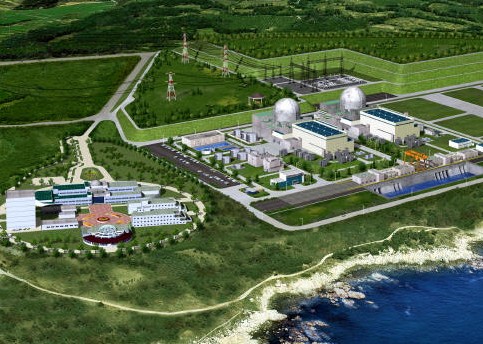South Korean nuclear export drive
28 August 2009
Korea Electric Power Company is emerging as a reactor vendor and its units could perhaps be built in India after a set of agreements signed off yesterday in Mumbai.
 |
How the APR-1400s at Shin-Kori should
look (Image: Kepco) |
A study will be carried out by Nuclear Power of India Ltd (NPCIL) and Korea Electric Power Company (Kepco) into the 'licensability and constructability' of Kepco reactors in India.
In theory this could be a step on the path for South Korea to become the third country to develop plans to export reactors to India, after Russia, France and the USA. All these plans have come in a rush after a virtual nuclear trade embargo against India was dismantled last year.
Kepco's APR-1400 is the technology to be studied, a pressurized water reactor (PWR) developed from System 80 units imported in the 1970s. That deal included an element of knowledge transfer and Korean firms have since mastered the design and manufacture of every single component of the APR1400. However, commercial conditions of the export of the design have not been made public and design rights holder Westinghouse could only tell World Nuclear News that confidentiality obligations prevented it from discussing any of the specifics. Nevertheless, Kepco has offered APR1400s in various markets around the world including Poland and Belarus as well as the Middle East and north Africa. One possibility is that the two vendors have agreed not to compete in the same territories.
Inside South Korea, there is one APR-1400 under construction at Shin Kori, with at least five more planned to start construction up to 2015. Four earlier-model OPR-1000s are also being built in addition to some 20 other reactors now operating. Overall, South Korea gets 40% of its power from nuclear plants with this share to grow with new build.
Besides reactor technology, the memorandums between NPCIL and Kepco also covered the development of nuclear projects, operation and maintenance, nuclear fuel as well as the manufacture and supply of equipment. No commercial deals can be made until the two countries have signed a bilateral nuclear cooperation agreement.